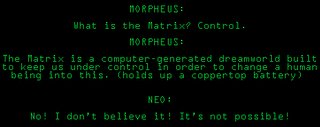Christians in India are facing unprecedented
persecution at the moment. We know that underneath the human conflict, is an ongoing spiritual battle for souls, and the only way we can be victorious is through prayer. Let's give time to pray for the missionaries and Christians in India. We know that God has His own people chosen among the Indians, and that He will draw these people to Himself for His glory and their joy.
As Jesus Himself said,“Other sheep I have which are not of this fold, them also I must bring, and they will hear My voice; and there will be one flock and one shepherd” (John 10:16). Knowing this, let us pray with confidence and faith that nothing can deter God's pleasure in rescuing His own people and giving them strength and grace in this difficult time.
Below is the update from GFA website on the situation:
02/21/2006: Behind the Wave: A Perspective on PersecutionFrom K. P. Yohanan, President of Gospel for Asia:
In my homeland of India, we are facing more persecution now than at any other time in our history. Our leaders on the mission field tell me that it has become such a regular, daily event that they now report only the worst cases.
In the last six weeks I have sent out numerous reports over email, spoken dozens of times on the radio and been quoted in print and web interviews. My purpose in all this public communication has been to encourage God’s people to pray about this situation. And that is my desire today as well. In providing a larger picture of what is behind this growing wave of persecution, I trust this will further enable the Body of Christ to deal with it prayerfully and powerfully.
Today, a battle for economic power and control rages in India—all under the guise of religion. Hindutva, literally, “Hindu-ness,” is a growing Hindu supremacist ideology that has a purely Hindu nation as its goal. To be Indian is to be Hindu, this dogma declares. Those who hold to this philosophy are part of a small but powerful group of extremists attempting to control the Dalit (“Untouchable”) and low-caste majority for their own gain.
When we look at the history of the human race, we see this is not an uncommon occurrence. The Crusaders who attempted to control the Holy Land by means of violence did not represent Christianity as a whole nor the teachings of Christ. Before and during World War II, a relatively small group of fascist leaders following Hitler—not the vast majority of the German population—were responsible for the murder of 6 million Jews. In countries ruled by Communist governments, it is not the masses but the minority that holds to a totalitarian ideology
You see, without Christ, the human heart never changes—it is always hungry for power. The Taliban used force to exert five years of stringent control over the entire nation of Afghanistan. And that is exactly what is happening in India—a radical minority is attempting to Hinduize a nation of over a billion people. This kind of thinking ultimately leads to ethnic cleansing, such as we have seen in Rwanda and Bosnia—and also in a mild form in the Indian state of Gujarat, where thousands of Muslims were massacred in 1992 and again in 2002.
These are the opposers and persecutors of Christians reaching out to the nearly 300 million Dalit and 400 million lower caste population. They accuse Christian workers of forced conversion and cultural destruction. Yet they are the wealthy landlords who oppose the establishing of educational centers for the children of these oppressed peoples.
Why persecute Christians? Because, just like in England and America in centuries past, believers in Jesus are the ones today working and praying toward the liberation of millions of “slaves” on the Indian subcontinent.
These slaves—the Dalits and other lower castes—make up the vast majority of the Indian population. Yet they are the ones harassed, abused, denied the right to worship, forced to live on the outskirts of villages, maltreated and even murdered—simply because of their social position. And today their desire for freedom is being threatened by the greed of a powerful minority . . . all for economic gain.

Indian newspapers repeatedly confirm this. The country’s national newspaper The Hindu printed an account of three Dalit college students who were beaten up simply because of their social status. According to The Telegraph, a Dalit woman was stripped and beaten to death by two men whose path she mistakenly crossed. A Dalit man was killed after attempting to pray at a local temple, said The Times of India.
It is a relatively common fact in India that some politicians who espouse Hindutva are agnostics and atheists. These are the same men who speak out against education in English—saying it destroys Indian culture—while enrolling their children in colleges and universities in Europe and North America.
So you see, the issue is not a primarily religious one, although proponents of Hindutva would lead the public to believe so. No, the issue here is much more sinister; it exposes the dark side of human nature. And while there are many other issues and variables involved in the struggle for spiritual freedom, this is a significant one that deserves much attention and prayer.
Today, India is at a crossroads. And we as believers in Jesus have the opportunity to help make an impact on this nation that will last for eternity.
Let us not forget that Indians are perhaps some of the most religious and sincere people in the world. They seek peace and the way of God—but without the knowledge of Christ there exists a huge vacuum in the land. These are people made in the image of God, people He loves just as much as He loves you or me.
“Other sheep I have which are not of this fold,” Jesus said, “them also I must bring, and they will hear My voice; and there will be one flock and one shepherd” (John 10:16).
Let us pray with compassion, love and faith for these millions to understand Christ and His love. And let us pray that the Church in India will demonstrate the love of Jesus in such a way that they will want to know the Jesus of the New Testament.
When Gladys Staines extended forgiveness to the men who burned alive her husband and two sons, her action captured the hearts of millions—and many turned to the Lord as a result. In my experience people often reject Jesus because of what they encounter in Christians, not because of what they encounter in the Word of God. If the Church in India authentically represents Jesus Christ, I believe the whole nation will follow Him.
As we grow in our understanding of the issues behind this persecution, we must also understand our responsibility in this situation as Christians. We must be willing to give of ourselves through prayer and fasting until we see a breakthrough. We must be willing to “dig in our heels” and not give up.

And through our sacrifice and willingness to identify with our suffering and oppressed brothers and sisters in Asia, I am convinced we will someday have the joyful privilege to welcome millions of men, women and children into heaven. The blessings we will experience then will be far greater than any discomfort or inconvenience now.









